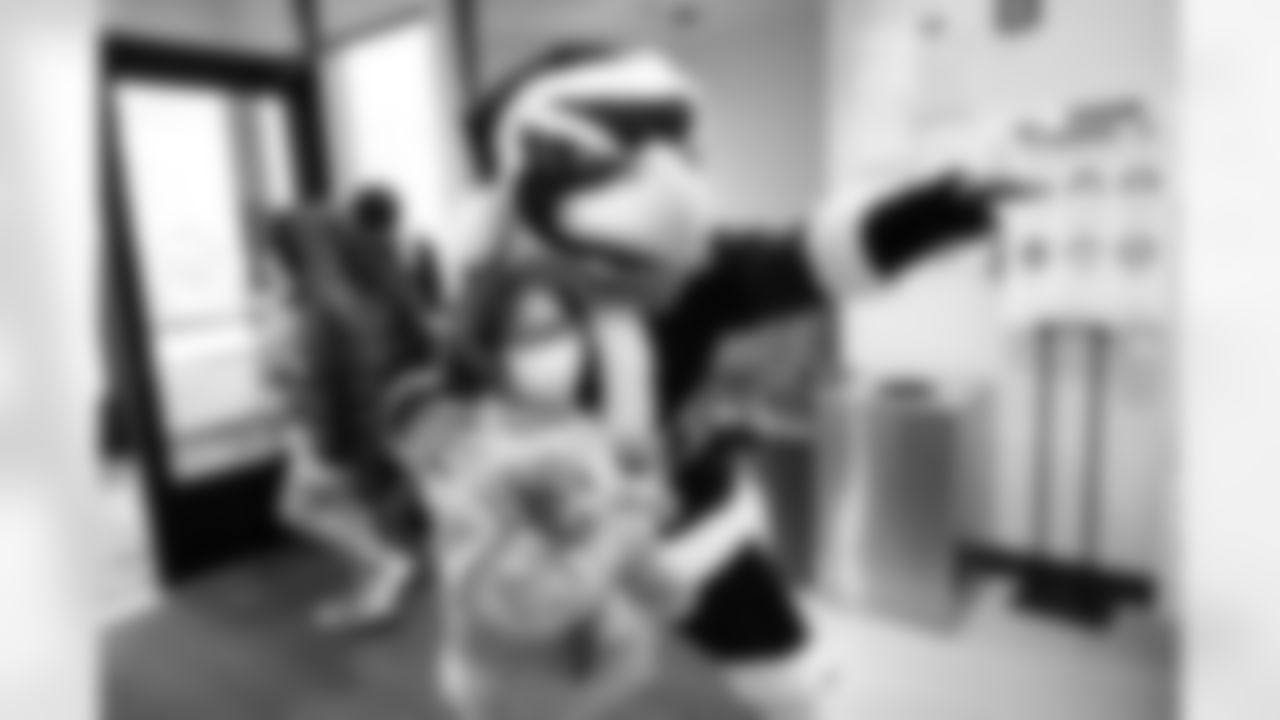When Dominique Davis, the founder of Community Passageways, was discussing the work that his Seattle-based nonprofit does two years ago, he declared, for good reasons, "We are doing damn good work. We are changing lives."
Community Passageways, which Davis founded in 2017, and which was a recipient of a social justice grant from the Seahawks in 2019, is a felony diversion and prevention program that is creating an alternative to the criminal legal system, with a vision for zero youth incarceration.
And as Davis said, they're doing damn good work, but a spike in gun violence in 2021 challenged Davis and Community Passageways to do even more. And in that spirit, 30 Days of Peace was created, with the support of the Seattle City Council, in an effort to get youth at risk for gun violence out of the city.
The 30 Days of Peace program took 16 at-risk young men out of Seattle for 30 days in Phoenix and Los Angeles, with those youth paid a stipend for their participation, which included attending mentorship, group therapy, life skills training, and leadership development sessions. The experience was captured in a documentary titled "16 Lives," a film presented by the Seahawks.
"Our community is unsafe for our young black people," Davis says in the film. "It's time for us to start doing something different. When we bring these young people back, if we just get 10 of them fulltime jobs and good housing situations, we did great. Every penny was worth it. The words don't need to be, 'We took these black kids out of the community, and let's see if we can get fewer shootings happening.' The words need to be, 'What is your responsibility as a politician? What is your responsibility as a business owner? What is your responsibility as a housing institution?' We've got 16 lives that are being saved right now. Sixteen lives, how much is that worth? You tell me a value of how much 16 lives are worth? And now, we're stepping in and saying the community has the answers—community healing community, period."
In addition to Davis, the 30 Days of Peace program included a program lead in both L.A. and Phoenix, as well as adult ambassadors, a support team of people who themselves have served time and are trying to help others avoid the same fate.
As ambassador named Tre, who spent 24 years in prison, put it, "The main thing that drew me here is that I wish I did have this opportunity. I did have that sudden change, but it wasn't on the street, it was prison, and you quickly realize, 'I've got to become better when I get out of here.' That's what I'd like for them to understand and not have to go through the same things I went through."
Trina, an ambassador who grew up in Seattle's Central District living in, as she described it, dope houses, wants to help at-risk youth understand their opportunities in the world extend beyond what they might see in their current environment.
"I'm here to show these guys that the world out there is bigger, and it has a lot more to offer than violence," she says in the film. "And everything that we think is norm, it's not norm."
Added Khalid, an ambassador who spent 15 years in prison, "It's reach one, pay it forward, and if we can keep these guys from going to prison, we save some lives."
With gun violence increasing in Seattle and King County in 2021, and with more and more youth at risk of either perpetuating gun violence or becoming victims of it, or both, the hope is that removing some of those at-risk youth from their environment and providing them mentorship and counseling can help break the cycle of violence in at least some lives.
"We're dealing with drastic and desperate situations, so our moves to deal with them have to be drastic," an ambassador named Brian says in the film. "We can't use the same old methods. We can't keep saying the same old thing, 'Hey change your life, work on your resume, change the people you're around.' We shouldn't have to leave town just to find somewhere to relax and breathe… Things have gotten to a point where people don't know how to deal with their pain without creating more pain."
Of course, taking these youth out of Seattle for a month is only the beginning of the process of helping them avoid violence or being caught up in the legal system. Using a football metaphor, an ambassador named Inye notes in the film, "This part of the game is halftime. We're at halftime… everybody knows, you've got to close out the second half strong."
Says Brandon, the team-lead in Arizona, "The hope is that the shift changes that when they go back to their community, the things that were appealing are not so appealing. I'm not saying that 30 days or three weeks is going to change that, but the hope is that it shifts so that everything is not the same."
In keeping with Inye's "halftime" metaphor, the second half for youth like the 16 who took part in the 30 Days of Peace program will be the Youth Achievement Center, which will be built in Seattle's Columbia City neighborhood to provide housing and support services for Seattle-area BIPOC youth.
To make the Youth Achievement Center a reality, Community Passageways has partnered with Creative Justice, the AfricaTown Community Land Trust and the Seattle Seahawks to provide a permanent home for our community. To learn more about the Youth Achievement Center and to donate, visit seahawks.com/yac.
Seahawks players, along with Blitz, visited the Odessa Brown Children's Clinic to spread some holiday cheer. In addition to spending quality time together, the kids also received Seahawks teddy bears thanks to Build-a-Bear.

Seahawks players, along with Blitz, visited the Odessa Brown Children's Clinic to spread some holiday cheer.

Seahawks players, along with Blitz, visited the Odessa Brown Children's Clinic to spread some holiday cheer.

Seahawks players, along with Blitz, visited the Odessa Brown Children's Clinic to spread some holiday cheer.

Seahawks players, along with Blitz, visited the Odessa Brown Children's Clinic to spread some holiday cheer.

Seahawks players, along with Blitz, visited the Odessa Brown Children's Clinic to spread some holiday cheer.

Seahawks players, along with Blitz, visited the Odessa Brown Children's Clinic to spread some holiday cheer.

Seahawks players, along with Blitz, visited the Odessa Brown Children's Clinic to spread some holiday cheer.

Seahawks players, along with Blitz, visited the Odessa Brown Children's Clinic to spread some holiday cheer.

Seahawks players, along with Blitz, visited the Odessa Brown Children's Clinic to spread some holiday cheer.

Seahawks players, along with Blitz, visited the Odessa Brown Children's Clinic to spread some holiday cheer.

Seahawks players, along with Blitz, visited the Odessa Brown Children's Clinic to spread some holiday cheer.

Seahawks players, along with Blitz, visited the Odessa Brown Children's Clinic to spread some holiday cheer.

Seahawks players, along with Blitz, visited the Odessa Brown Children's Clinic to spread some holiday cheer.















